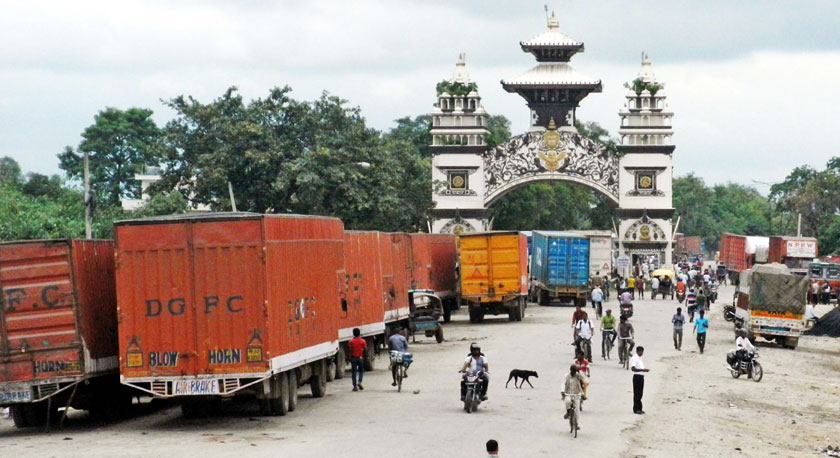Tarai unrest renders 1.1 million construction workers jobless
"Without fuel we cannot produce or transport construction materials. This has created short supply of sand, stone, bricks and cement"
Kathmandu, December 1
Sulav Shrestha is not very optimistic about his future these days. A mason by profession, Shrestha was easily earning around Rs 1,000 per day during this time of the year in the past.
Although his wage has not come down lately, he’s now confined to a small project on renovation of a house in Kumarigal.
“Since this is not a big one, it’ll probably be complete in three to four days,” says the 34-year-old, adding, “I’m not sure whether I’d be able to find another job after this.”
The fear of not finding a new job haunts him because construction activities have come to a standstill due to supply disruption created by blockade on Nepal-India border points.
The supply disruption, in turn, has created a crisis of petroleum products, which provide a lifeline for the construction sector.
“Without fuel we cannot produce or transport construction materials, such as sand, stones, bricks and cement. This has created short-supply of these products,” says Jay Ram Lamichhane, former president of the Federation of Contractors’ Association of Nepal. “Also, fuel shortage has prevented us from operating construction equipment.”
These factors have brought 99 per cent of construction work to a halt, according to Lamichhane.
Halt in construction works will cost dear to the country, which is gearing up to rebuild areas ravaged by massive earthquakes of April and May. This has also put a question mark on the fate of other physical infrastructure that the country was planning to build this fiscal year.
Worse, shutdown in construction activities, according to Lamichhane, has rendered around 1.1 million construction workers jobless.
This is probably the first time the construction sector, one of the labour-intensive sectors, has seen such a big cull of jobs. And this does not bode well for Nepal, as many of those who have lost jobs may fall into the trap of poverty and ‘those who fail to find work in the near future may seek employment opportunities abroad’, increasing labour flight from the country.
Although labour flight has continuously raised the country’s remittance income ticking Rs 617.28 billion in the last fiscal year it has created shortage of labourers in different sectors.
This trend, many experts have said in the past, will not do good in the long run because the country needs a large number of qualified human resources to give a lift to the flagging economy.
Even before the latest crisis began, construction was one of the sectors that was hit hard by the problem of labour flight, leading to significant hike in construction wages in the last several years.
In the fiscal year 2010-11, for instance, construction wages had gone up by an average of 21.30 per cent, show data of Nepal Rastra Bank. A year later, wages went up by 31.80 per cent. Last fiscal alone construction labourers booked 9.9 per cent hike in their earnings.
“We were planning to use these figures to lure Nepalis, doing menial work abroad, back into the country,” says Chandra Bhakta Nakarmi, former curriculum director of the Council for Technical Education and Vocational Training.
But given the present situation, Nakarmi is not sure whether that idea will work.
“However, I think the present crisis is a short-term phenomenon. I believe more people will not have to go abroad as there are lots of job opportunities here,” says Nakarmi.






